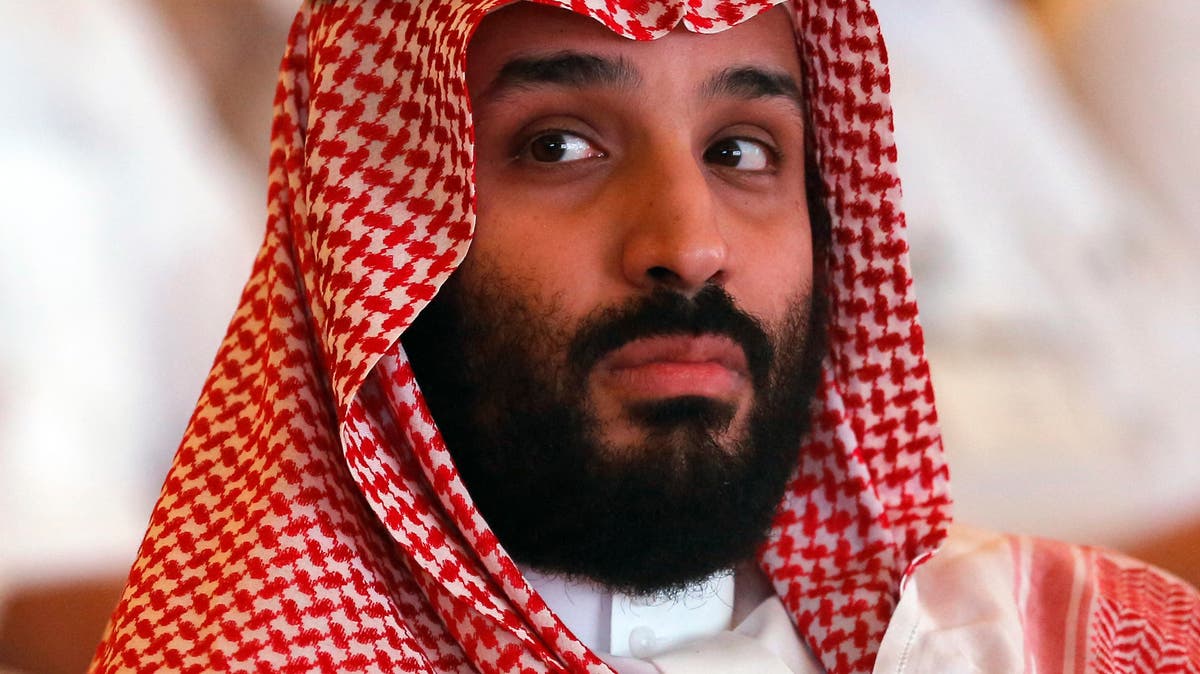Analytics
US report accuses Crown Prince Mohammed of killing Khashoggi: a turning point for the United States and Saudi Arabia
As for US intelligence agencies, one thing is clear: Mohammed bin Salman approved the arrest or killing of Jamal Khashoggi at the Saudi Consulate in Istanbul. President Biden charts the consequences – but only half-heartedly.
Saudi Crown Prince Mohammed bin Salman: According to US intelligence, he approved the killing of Jamal Khashoggi.
In the ups and downs of US policy in the Middle East, there have been great tensions time and time again between Washington and its Arab American partners since World War II. But never before has a US government publicly discredited the ruler of an allied state as the mastermind behind a brutal political murder.
The publication of the CIA report on the death of dissident Jamal Khashoggi and the role of Saudi Crown Prince Mohammed bin Salman in the act thus constitutes a turning point in the relations between the United States and the entire region.

These are the last video recordings of Jamal Khashoggi: A critic of the Saudi royal family entered the Saudi consulate in Istanbul at the beginning of October 2018. There is a murder.
What is about to break out has always been a problem in relations between the United States and Saudi Arabia, but it has always remained so far under the covers: America, as a leading Western power and guardian of basic democratic values, cooperated with an Islamic regime that persecuted women and imprisoned or executed its critics and deprived its people of any Democratic participation in power.
The United States is no longer dependent on Saudi oil
Saudi Arabia’s jobs as an oil producer, the Western settlement outpost on the Gulf and the bulwark against Iran have all pushed human rights concerns into the background. This rule no longer applies. As a result of fracking, the United States itself has become one of the largest oil producers in the world and is no longer dependent on the Saudis: in 2019, America imported only three percent of its oil needs – in 2005 it was 60 percent.

Thomas Seibert, Istanbul
Due to climate change, the expected depletion of oil reserves and the boom in alternative energy sources, oil will never be as important as it was before. That is why it is now easier for the United States to grab a new thread with regards to Saudi Arabia. The sharp pace toward Saudi Arabia has also been divided into other foreign policy priorities of the new US government. In his first major foreign policy speech at the beginning of February, President Joe Biden announced that the United States would take a stand against authoritarian regimes such as China and Russia.
In his dealings with Saudi Arabia, Biden makes clear that he does not want to accept Mohammed bin Salman – known as MBS – as an interlocutor, even though the heir to the throne de facto rules the Saudi kingdom. Mohammed bin Salman is supposed to be isolated and, if possible, surrender to the throne. This Monday, the Biden government wants to present the main features of its new policy toward Saudi Arabia.
A reference to other countries in the region
According to media reports, US arms shipments to the kingdom may be restricted after the United States reduced its arms support due to the Saudi war in Yemen. The fact that Biden publicly insulted a traditional partner is an indication of other U.S. partners in the region such as the United Arab Emirates, Egypt, or Qatar. Human rights are grossly violated in all of these countries.
As a result, during the era of Barack Obama, the United States temporarily stopped arms deliveries to Egypt. What is happening now with Mohammed bin Salman may happen soon also for those in power in other countries. The US government is trying to attach this message to another: Just one day before the Khashoggi report is published, Biden ordered the first military strike of his presidency – against pro-Iranian militias in Syria.
With this, Biden wants to make it clear that he does not want to accept Iranian aggression. Washington wants to avoid US partners in the Middle East becoming suspicious of US support, as they did during the Obama era. Reactions from the region indicate that Biden will have difficulty enforcing this policy with the allies. Saudi Arabia rejected the Khashoggi report, with support from Bahrain, Kuwait and the United Arab Emirates. Difficulties also appear in Biden’s relationship with Israel.
Biden lacks a plan
The weakness of the US government’s approach is not that it wants to focus more on human rights in relations with its partners in the Middle East, or that it wants to break away from the previous close ties between politics and oil. Biden’s policy has so far lacked a fundamental substance. What does Washington want to achieve with the new line?
So far there is no convincing answer to this question. So it is no wonder that some critics of the US President are already asking why Mohammed bin Salman was not included in the list of nearly 80 Saudi government officials being sanctioned by US sanctions for their role in the Khashoggi assassination. Biden’s new policy comes with high moral standards – and its success will depend critically on whether it lives up to that claim.

“Award-winning music trailblazer. Gamer. Lifelong alcohol enthusiast. Thinker. Passionate analyst.”





More Stories
Harry's plan to crown Charles sends a clear message, Insider reveals
'The Last of Us' series is already celebrated – is it better than 'The Walking Dead'?
US broadcaster justifies Kate's jokes on live show – and receives criticism